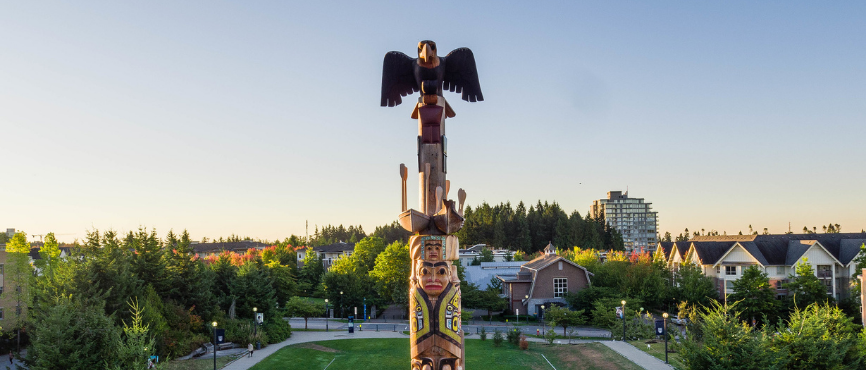
This month, in honour of Orange Shirt Day and the newly introduced National Day of Truth & Reconciliation, the VPFO’s EDI Committee will be sharing a series of blogs to drive awareness of the legacy of residential schools and help us all foster a commitment to reconciliation.
In support of each blog, a question will be posted to an online board, inviting all members of the VPFO to share their thoughts and spark conversations around this important topic within their communities. We also encourage you to review UBC’s Indigenous strategic plan to learn more about our commitment to becoming a leading university globally in the implementation of Indigenous peoples’ human rights.
Share your thoughts with us on this digital jamboard
What is the National Day for Truth and Reconciliation?
The National Day for Truth and Reconciliation has been created as an opportunity for all Canadians to recognize and commemorate the legacy of residential schools, which over 150,000 First Nations, Metis and Inuit children were forced to attend between the 1870s and 1997. The date of September 30 was chosen because it was the time of year when Indigenous children were removed from their families and forced to attend the church-run, government-funded residential schools.
What is the Truth and Reconciliation Commission of Canada (TRC)?
The Truth and Reconciliation Commission of Canada was established in 2008 by the Indian Residential Schools Settlement Agreement. Its mandate is to gather survivor testimonies and official records and to inform all Canadians about what happened in Indian Residential Schools.
In 2015, the Truth and Reconciliation Commission of Canada (TRC) published its final report detailing the terrible history of the residential school system, its sad legacy, and lasting impacts. One outcome of the report was a document detailing 94 calls to action across a wide range of areas including child welfare, education, health, justice, language and culture.
In 2018, the Indian Residential School History and Dialogue Centre (IRSHDC) at UBC officially opened in a ceremony that included a statement of apology delivered by President Santo Ono, for UBC’s involvement in the system. IRSHDC serves as an accessible place on the west coast for former students and survivors, their families and communities to access historical material that the TRC and others have gathered, and to have a place to discuss their experiences, the history, and its effects and implications.
Why are the TRC Calls to Action important?
It’s important to recognize the historical and ongoing wrongs perpetrated against Indigenous peoples and the legacy of colonialism still in place today.
These calls to action address the ongoing impact of residential schools on survivors and their families, as well as provide a path for government and Indigenous and non-Indigenous communities across Canada to create a joint vision of reconciliation.
What can I do?
As individuals, we can do our part to learn about the history of residential schools. Through reviewing educational resources and listening to the stories being told by survivors, we can become better allies and strengthen our relationships with Indigenous Peoples.
Here are some resources that may help:
- Truth and Reconciliation Commission of Canada: Calls to Action
- Truth and Reconciliation Commission 6-volume final report published in 2015
- Video: Former Senator and Chair of the Truth and Reconciliation Commission, Murray Sinclair’s statement on the discovery at the former Residential School site in Kamloops
- Indian Residential School History and Dialogue Centre at UBC